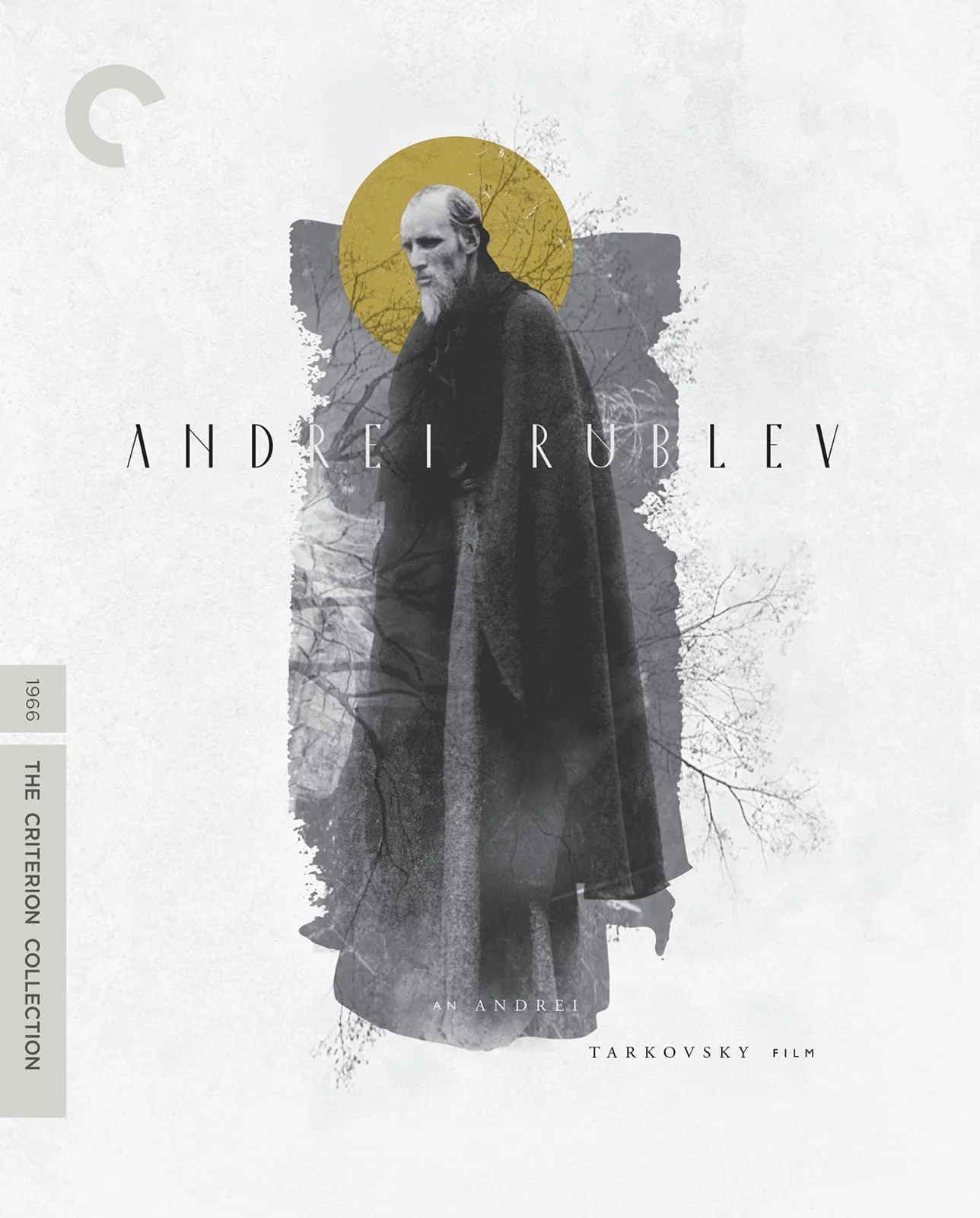Andrei Rublev
Directed by: Andrei Tarkovsky, 1966 (restored); Runtime: 2 h 55 min; Rated: Teens and up
One of the 15 films listed in the category "Religion" on the Vatican film list.
In the spirituality of the Eastern Churches, icons are sometimes called "windows into heaven." Even when they depict earthly events, their stylized approach is meant to evoke transcendent realities.
Andrei Rublev, Trinity
Transcendence in art is both the subject and the method of Andrei Tarkovsky’s haunting, challenging Andrei Rublev, which takes the life of a 15th-century monk who was Russia’s greatest iconographer, not as its subject, but as its point of departure. Neither biography nor historiography, Andrei Rublev is a collection of loosely related episodes touching on crises of faith, brutality and chaos, and finally the response of the artist and believer. - Decent Films
What is Cinema Divina?
“Video [cinema] divina requires a set disposition which says ‘This evening, I wish to get closer to God so I think I’m going to watch this film which might give me better insights into myself or why my neighbor acts as she or he does….’”
CINEMA DIVINA IS LECTIO DIVINA EXPERIENCE IN FILM.
Daughters of St. Paul developed this helpful outline for "deep viewing":
1. Be attentive. Pay attention to what’s happening outside of you, as well as inside of you as you interact with media (radio, music videos, etc.) What do I see? What do I hear? What do I feel—what attractions, repulsions, inspirations? What emotions are stirred in me? Why? What character(s) do I relate with most? Least? Tell Jesus about these things. Allow Him to look with you at all the positive and negative things you see, inside and out.
2. Be intelligent. What do I think about what I have just seen, heard, felt? Try to articulate the philosophies present or the underlying assumptions and values. What do I think about the characters, personalities, choices, behavior, etc.? About the plot? What bits of information or new insights have I received? Ask the Holy Spirit to give you Knowledge and Wisdom to see things clearly and understand them more deeply.
3. Be reflective. Ponder with God what you have seen, heard, read, felt. Allow questions to surface. Wonder about the things that still don’t make sense. Take time to marvel and appreciate the things that seemed good and true and beautiful. Has it faithfully reflected the reality it attempted to portray? What good did I find in it? And in what way was it good? (artistically, intellectually, emotively, morally, socially, scientifically, etc.) What was bad? What values and nonvalues did I find? How do they compare with the values taught in the Bible and in my Catholic Faith? Has this program, song, article, etc., changed my way of looking at things? Has it broadened my understanding and my imagination? Has it raised new questions in me? Has it made me more sensitive to others’ needs and sufferings? Has it made me less sensitive?
4. Be responsible. What will my response be? What change in my own life might God be calling me to through this song, movie, article, etc.? In what way might God be inviting me to live more fully human (rational, free, loving)? How might He be inviting me to love and serve Him and my fellow human beings more selflessly?


